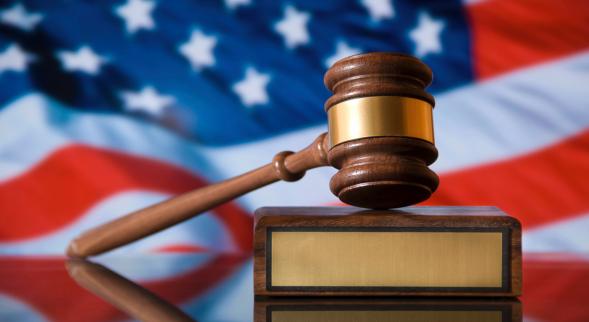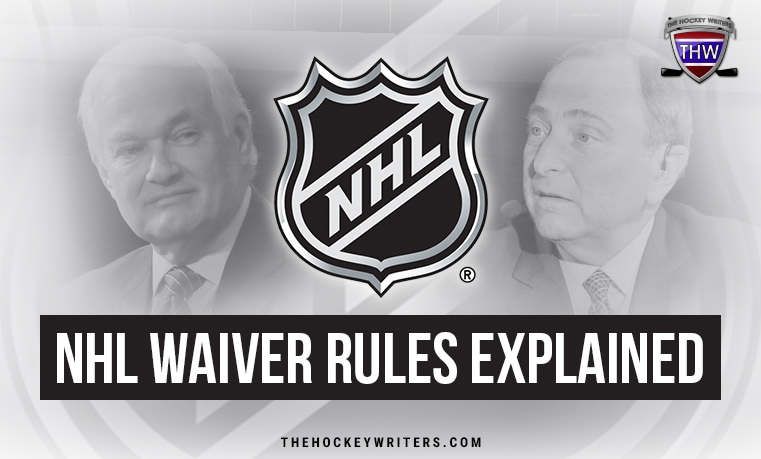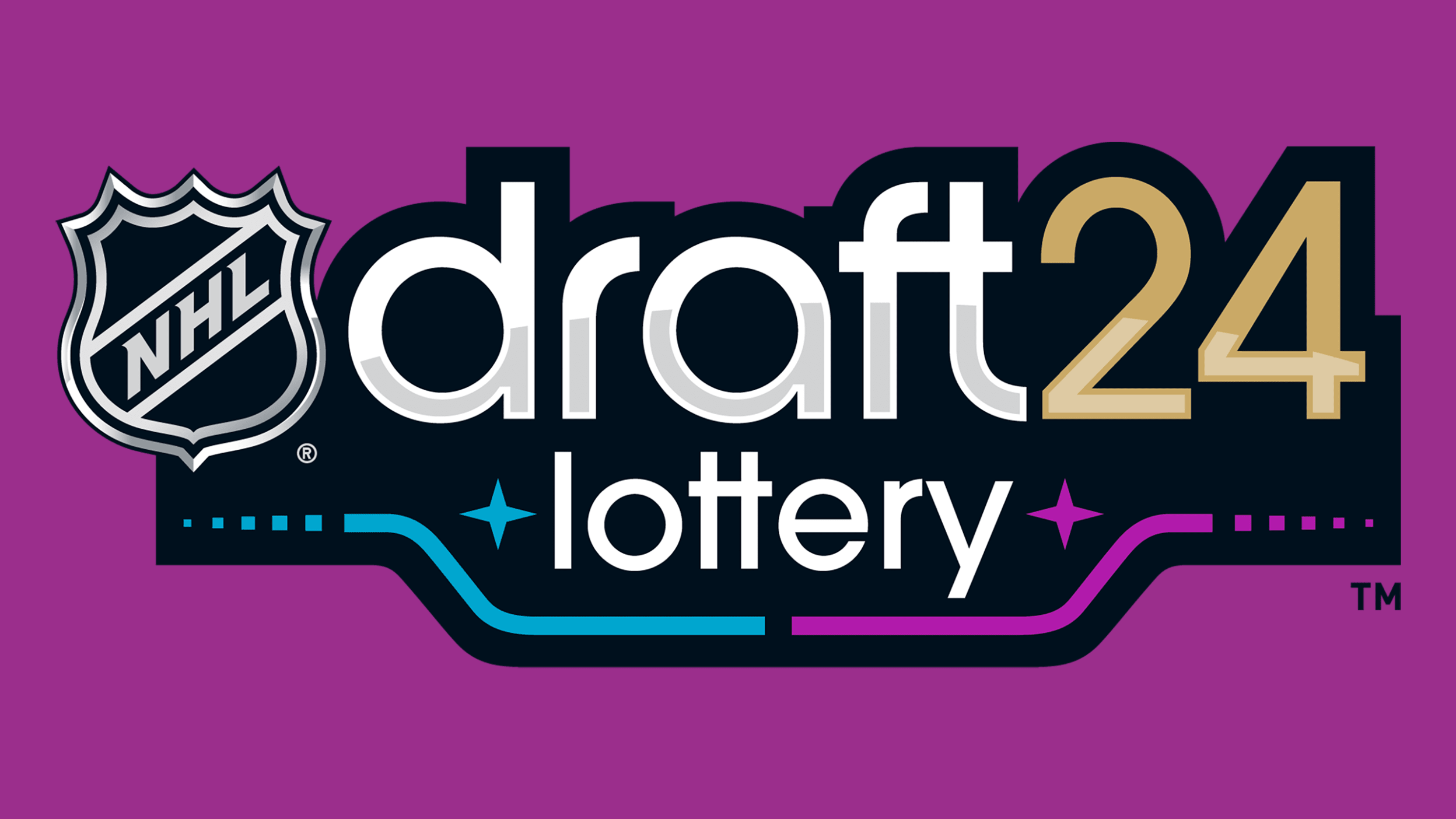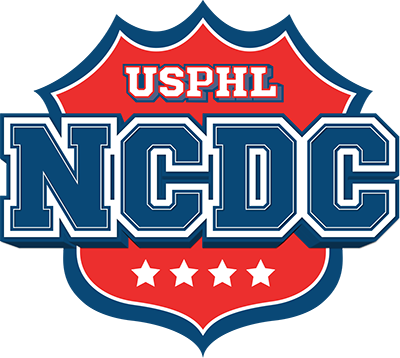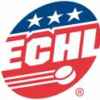
Duties of Sports Agents to Athletes and Statutory Regulation Thereof
Duties of Sports Agents to Athletes and Statutory Regulation Thereof [1]
The Sports Agent Responsibility and Trust Act of 2004 (SPARTA) and the Uniform Athlete Agents Act (UAAA) have helped protect student-athletes and educational institutions against harmful acts by unscrupulous sports agents. Statutory regulations have come up short in enforcing agents’ duties to all athletes; however, and while aspects of agency law, the Racketeer Influenced and Corrupt Organizations (RICO) Act, players’ associations regulations, and various Bar Associations’ rules have helped fill some of the gaps, there continues to be a need for increased oversight over the sports agent profession. This article argues that student-athletes should have a statutory right to enforce the duties of sports agents, all sports agents should have to be licensed under a federal registration system, and that there is a need for a self-regulatory commission of sports agents to help weed out the unscrupulous agents who do not fulfill their duties in the representation and solicitation of any athlete.
I. INTRODUCTION
Sparta is not merely the name of an ancient Greek city-state. In the United States, SPARTA is an acronym that stands for The Sports Agent Responsibility and Trust Act of 2004.[2] As of this paper’s date of completion, SPARTA is the sole federal statute that regulates sports agents (SPARTA refers to sports agents as “athlete agents”). While SPARTA is the only federal statutory regulation, forty-one states, Washington D.C., and the U.S. Virgin Islands have some form of state laws that regulate sports agents.[3] Washington D.C., the U.S. Virgin Islands, and thirty-eight of the forty-one states with sports agent regulatory laws have adopted the Uniform Athlete Agents Act (UAAA), or a variation thereof.[4] The UAAA is a model law enacted in 2000 and intended to create a uniform system of rules to regulate sports agent conduct in the recruiting of student-athletes to sign agency contracts.[5] Nine states and Puerto Rico are left without any state statutory regulations. For those states, SPARTA is not a strong enough regulation to enforce the duties of sports agents to athletes. A majority of the states and territories that have adopted the UAAA or their own separate state law to regulate sports agents are also not protecting all of their athletes. SPARTA and the UAAA are limited in focus. They only place duties on sports agents when they are either recruiting or signing student-athletes. Once the athletes no longer retain NCAA eligibility, SPARTA and the UAAA no longer apply. Sports agents continue to default on their duties to athletes due to a lack of a sufficient deterrent in all states. For the most part, statutory regulations do not provide sufficient power to the athletes to protect themselves; accordingly, current statutes are not the answer to enforcing the duties of sports agents. Student-athletes and professional athletes need a private statutory right of action against unscrupulous agents in addition to the rights listed in Parts I-V.
II. AGENCY LAW BASED DUTIES OF SPORTS AGENTS TO ATHLETES
A fiduciary relationship exists between a sports agent and an athlete upon the signing of an agency contract or Uniform Players Contract in a professional sports league.[6] The fiduciary relationship results from the manifestation of consent by the athlete to the agent that the agent will act on the athlete’s behalf and subject to the athlete’s control.[7]
A sports agent has a duty to discover and disclose to his clients material information that is reasonably obtainable, unless the information is so clearly obvious and apparent to the athlete that, as a matter of law, the sports agent would not be negligent in failing to disclose it.[8] Athletes have a limited focus. Their main goal is to produce on the field, court, or similar venue, and to do whatever is necessary to reach peak performance. Athletes are not always aware of all events concerning their affairs outside of the field of play, and rely on their agents to provide assistance when necessary, including the disclosure of all information holding importance for the athletes. Not a month goes by without rampant allegations, fines, and suspensions regarding the use of performance enhancing drugs. Professional leagues provide and promote lists of banned substances, and agents have a duty to inform their clients of those banned substances before any abuse is committed.[9] A sports agent may receive short term monetary gain if his client takes a banned substance and receives a large contract based on excelled performance; however, that sports agent must subordinate his own interests in favor of his client’s, which includes longevity of success and avoiding trouble by adhering to banned substance policies.
Agency law also requires that sports agents use care in acting on behalf of their athlete clients and expend reasonable efforts to provide material information to them.[10] This includes an agent’s responsibility to discuss terms with a client about an agreement between the client and a professional organization prior to engaging in a deal that binds the client with that organization. It also involves communication with a client in reference to endorsement or sponsorship opportunities before making any promises to a company wishing to acquire the rights to the client for a particular purpose. Additionally, a sports agent must not use his position or an athlete’s property to benefit himself or another entity, unless the athlete has given consent for the agent to do so. While working for IMG, sports agent Bill Henkel, secured a memorabilia deal for Pro Bowl running back, LaDanian Tomlinson.[11] Henkel received personal kickbacks worth up to twenty-five thousand dollars from the company hiring Tomlinson, without Tomlinson’s or IMG’s knowledge or ratification.[12] Henkel faced felony charges for commercial bribery and theft.[13] If a sports agent receives any type of commission for referring an athlete to a particular company for any type of service, that agent is benefitting from his athlete client’s status, and unless the client consents, the agent is violating a fiduciary duty.
SPARTA and the UAAA do nothing to enforce the duties of sports agents to their professional clients, and neither statutory regulation prescribes a certain method of enforcement for a violation of agency law. Instead, athletes who believe that sports agents do not abide by their fiduciary duties can raise a cause of action for breach of contract or negligent representation (in tort).[14] The statutory regulations of SPARTA and the UAAA deal exclusively with the recruiting and signing of student-athletes. Once the student-athlete label no longer applies, athletes must look outside of the statutory regulations to enforce the common law agency rules that bind sports agents to a fiduciary duty of care. Even while the student-athlete label applies, the statutory regulations do not empower the athletes to take any action themselves.
III. STATUTORY REGULATION OF SPORTS AGENTS UNDER SPARTA
SPARTA (the Sports Agent Responsibility and Trust Act) only binds sports agents to a certain code of conduct regarding the recruiting and signing of student-athletes.[15] The word “student” precedes every mention of the word “athlete” in the definitions of “Agency contract” and “Athlete agent.”[16] Thus, SPARTA is very limited in its power to ensure that sports agents abide by their duties to all types of athletes.
There are three main sports agent duties embedded in SPARTA’s regulation of unfair and deceptive acts and practices in connection with the contact between a sports agent and a student athlete.[17] The duties are: 1) A duty to be truthful, 2) A duty of disclosure, and 3) A duty to refrain from “buying” an athlete.[18] The duty to be truthful may be found within §7802(a)(1)(A) and §7802(a)(3). §7802(a)(1)(A) prohibits a sports agent from giving a student-athlete false or misleading information. It also does not allow an agent to make a false promise or representation to a student-athlete. If a sports agent promises a college junior basketball player that he will be an NBA Draft Lottery Pick without any solid foundation for making that statement, the sports agent may be in violation of §7802(a)(1)(A). Mario Austin was a rising senior student-athlete at Mississippi State University when he signed with sports agent, Bill Duffy, which forced Austin to forego his remaining year of amateur eligibility.[19] After the Chicago Bulls selected Austin in the second round of the 2003 NBA Draft, Duffy advised Austin to sign with CSKA Moscow, a professional basketball team in Russia.[20] Austin claimed that Duffy misled Austin into leaving school early and traveling overseas to play for CSKA Moscow, but Austin eventually dropped the lawsuit.[21] If Duffy made false promises to Austin about his draft stock or the benefits of going abroad to Russia, Duffy could be held liable under §7802(a)(1)(A). §7802(a)(3) makes it unlawful for an agent to predate or postdate an agency contract. If a student-athlete signs with a sports agent, the agency contract is executed immediately and the student-athlete no longer retains his NCAA eligibility.[22] Circumvention of the execution of an agency contract on its proper date is illegal according to SPARTA.[23]
§ 7802(a)(2) concerns the duty of disclosure. It promulgates that sports agents recruiting student-athletes must provide the athletes or their parents (if they are under the age of eighteen years-old) with a disclosure document containing a warning about the potential of losing NCAA eligibility following the signing of the document. The warning must be in boldface type and placed as close as possible to where the student-athlete or his parents sign the disclosure document. Additionally, the athletic director or another high-ranking entity at the student athlete’s institution must receive notification of the agreement immediately following the signing of the document.
The last component is what I like to call the duty to refrain from “buying” an athlete. § 7802(a)(1)(B) prohibits a sports agent from giving anything of value to a student-athlete or anyone associated with him, until the student-athlete has signed an agency contract. Signing an agency contract voids any remaining NCAA eligibility that athlete had, anyway.[24] Sometimes, discovery of these gifts do not occur until after the athlete has used up all of his eligibility. Sports agents may still face penalties under SPARTA once the athlete is no longer a student. Former University of Southern California running back, Reggie Bush, received a great deal of financial assistance while in school. In total, Bush received upwards of $280,000 in cash, rent, and gifts from sports agents interested in having Bush as a client.[25] Investigations on this specific matter are still being conducted well into 2009.
There are two ways to enforce the duties created by SPARTA: 1) State action taken by the state’s Attorney General on behalf of the residents of that attorney general’s state, or 2) Federal action taken by the Federal Trade Commission (FTC).[26] If the FTC institutes an action against a sports agent, SPARTA prohibits state Attorneys General from commencing an action against the same sports agent charged with violation of his duties to a student-athlete.[27] Under the Federal Trade Commission Act, a sports agent may receive punishment of up to $11,000 for violation of an unfair or deceptive act or practice, which many believe is not a sufficient consequence to deter the larger and more successful sports agents/agencies.[28]
No fiduciary relationship exists when a sports agent is recruiting a student-athlete to sign an agency contract.[29] At that point, the athlete has not yet become a principal and the sports agent has not yet become his specific agent. Thus, SPARTA serves an important role in creating duties for sports agents with respect to their relationships with athletes before agency law would kick in to protect athletes. However, SPARTA has received criticism because of the limits it places on those who can take action if a sports agent does not live up to his duties.[30] If state Attorneys General or the FTC decides not to act on agents’ wrongdoings, injured student-athletes have no recourse under SPARTA. The key to the effectiveness of SPARTA is enforcement, and many critics point out that area, in particular, as the statute’s weakness.
IV. STATUTORY REGULATION OF SPORTS AGENTS UNDER THE UNIFORM ATHLETE AGENTS ACT (UAAA)
Nebraska became the thirty-eighth state to adopt the a version of the UAAA after it passed in the state’s Senate by a vote of 40-0.[31]The UAAA model law was created nine years ago, was endorsed by the drafters of SPARTA, and still has not yet been adopted by all fifty United States.[32] The last section of SPARTA encourages all states to pass the UAAA as an extra protection against unscrupulous sports agents, but even in states bound by SPARTA and the UAAA, many holes in the statutes’ coverage continue to exist. The UAAA still makes a noble effort at professionalizing the business of sports agents by instituting a registration requirement in the states that have adopted the Act.[33] Sports agents, whether they are employed by a corporation or serve as sole practitioners, must register with, and be certified by, any state in which they have established minimum contacts.[34] This includes states where a sports agent wishes to contact student-athletes and the state in which the sports agent resides. As with SPARTA, the UAAA is not concerned with the protection of professional athletes.[35] The only type of athlete protected by the statute is a student-athlete. Once an athlete no longer has any NCAA eligibility remaining, SPARTA and the UAAA are inapplicable to sports agents’ duties to athletes, and a sports agent may contact any non-student-athlete at will.
The UAAA creates a duty of disclosure, much like SPARTA. SPARTA requires a disclosure document that warns student-athletes, in boldface type, about the potential loss of NCAA eligibility following the signing of the document. The UAAA requires a similar warning, in boldface and capital letters, attached to any agency contract between a student-athlete and sports agent.[36] Additionally, agency contracts are required to contain information regarding the type of fees the sports agent will charge the student-athlete, the amount of fees, names of unregistered agents receiving compensation, expenses that are reimbursable, services provided, and cancellation and notice requirements.[37]
The UAAA also prohibits the “buying” of a student-athlete. If a sports agent gives any item of value to a student-athlete for the purpose of having that athlete sign an agency contract, the result may be criminal or civil penalties against the agent.[38] Thus, former NBPA certified agent, Josh Nochimson, could face criminal or civil penalties for funding lodging, transportation, and restaurant meals for former University of Connecticut Husky, Nate Miles, should Connecticut’s Department of Consumer Protection press charges.[39] The University of Connecticut could also bring a civil suit against Nochimson.
In addition, the UAAA requires sports agents to register in a state in order to be granted permission to initiate communication with a student-athlete who attends classes at an educational institution within that state.[40] State registration fees range from twenty-dollars in the state of Arizona to two-thousand-five-hundred dollars in Delaware.[41]
Alabama, the thirty-fourth state to adopt the UAAA, is particularly serious about enforcing its rules regarding sports agents. The state has shown that it is willing to charge sports agents with felonies if they violate any of the prohibitions or do not fulfill any or all of the requirements. In 2006, the state of Alabama charged Jason Goggins of Savage Sports Management with a Class C felony for initiating communication with former University of Alabama wide receiver, Tyrone Prothro, without proper registration and while Prothro was in school.[42] When filed, the case against Goggins was the eighth criminal case against sports agents in the state of Alabama.[43] In 2008, Savage Sports Management’s CEO, Raymond Lee Savage Jr., was arrested and taken into custody for action stemming from the same event.[44] Alabama charged Savage Jr. for merely telling Goggins to visit Prothro and paying for Goggins’ flight.[45] Alabama’s enforcement of its UAAA adopted sports agent law led one former NFLPA advisor to say, “[Don’t] ever represent any player that is a resident or goes to school in the state of Alabama. I am not an agent anymore, but I wouldn’t do it.”[46]
Alabama is one of many southeastern states that tend to take sports agent registration and licensing seriously. In 2006, Charles Taplin was arrested on Louisiana State University grounds for attempting to make contact with LSU student-athletes.[47] Taplin was not registered in the state of Louisiana. On the opposite end of the United States, a sports agent can be fined up to $25,000 for every day that he violates or fails to comply with Hawaii’s state regulations.[48]
If a sports agent is in violation of agency law, the student-athlete may take action.[49] If there is a SPARTA violation, state Attorneys General or the FTC can step in and file against the unscrupulous sports agent.[50] In regards to the UAAA, the Secretaries of State of UAAA signatory states have the power to penalize sports agents for any violations of the Act (some UAAA states have given other state entities that power, as well).[51] In an effort to promote the unity of the Act, all other UAAA signatory states will respect a state enforcement agency’s decision to punish a sports agent.[52] Like SPARTA, the UAAA does not give the athlete, student or not, a statutory cause of action.[53]This means that while an athlete is a student, the student athlete has no method of enforcing a sports agent’s duties (as agency law would not yet be applicable). However, the UAAA does give a student-athlete the power to void a contract with a sports agent if the sports agent does not follow all UAAA requirements in the agency contract.[54] Thus, if the warning to student-athlete is positioned at the beginning of an agency contract instead of placed in close proximity to the signature of the student-athlete, the student-athlete may void that agency contract and the sports agent may not receive compensation for services rendered.
The UAAA’s primary purpose is to protect educational institutions by creating a uniform code of rules and regulations. While student-athletes were a concern for the drafters of the UAAA, their primary goal was to protect educational institutions’ financial interests against the practices of unscrupulous agents who may jeopardize a student-athlete’s NCAA eligibility, and thereby hurt the educational institution’s sports program.[55] If a sports agent ignores NCAA and UAAA rules and regulations, it can lead to declaring a student-athlete ineligible, or result in an educational institution forfeiting funding.[56] Both consequences result in a negative financial consequence for that institution. This is specifically why the UAAA gives educational institutions a cause of action.
V. OTHER STATUTORY REGULATIONS OF SPORTS AGENTS
While SPARTA and the UAAA deal directly with sports agents and athletes, there are other non-sports related federal statutes that prescribe certain duties for sports agent conduct. For instance, the Racketeer Influenced and Corrupt Organizations (RICO) Act was applied in the case of U.S. v. Walters-Bloom, where sports agents Norby Walters and Lloyd Bloom were found to have provided student-athletes with money and went as far as to send letters to the NCAA on the student-athletes’ behalf.[57] Those letters claimed that the athletes were eligible to participate in NCAA competition when, in fact, they were not.[58] The court found a pattern of racketeering, but reversed a previous holding that stated the sports agents were guilty under the RICO Act.[59] The success rate in holding sports agents accountable by using the RICO Act has varied since the Walters-Bloom decision.
VI. NON-STATUTE BASED REGULATION OF SPORTS AGENTS
A recurring theme found throughout the statutes intended to bind sports agents to a particular code of conduct is that they do not do enough to deter unscrupulous conduct. Enforcement of the statutes is bare, and the statutes themselves are under-inclusive. Fortunately, for some professional athletes, other rules and regulations may protect them against sports agents who do not have their best interests in mind.
Professional baseball, basketball, football, and hockey have players’ associations that declare regulations for all sports agents who wish to represent a professional athlete in the MLB, NBA, NFL, or NHL. The players associations are unions, and require sports agents to register as members and abide by their rules.[60] Sports agents are at the mercy of the unions’ Executive Committees and risk losing membership or being heavily fined, should they not adhere to the rules set forth by the individual associations. Each association’s regulations include sections that require an agent to be competent and ethical in his representation of the sport’s professional athletes.[61] At a minimum, each players’ association does a full background check on every sports agent who would like to gain entry as a certified advisor.[62] The background checks include researching past criminal convictions, bankruptcy filings, and fraud or embezzlement charges.[63]The unions reinforce the fact that the relationship between agent and athlete is fiduciary in nature, and even provide uniform contracts to sports agents as a base to work from when negotiating players’ deals with their respective teams.
While the MLBPA, NBPA, NFLPA, and NHLPA act as a strong check to deter sports agents freely taking advantage of their clients, not all professional athletes play one of the “Big Four” sports. For athletes who are professional bowlers, for instance, there is no union or players’ association to make sure that sports agents have clean criminal records, or to prevent sports agents from engaging in activities that could create conflicts of interest. SPARTA and the UAAA do not apply, as professional bowlers are not student-athletes.
Professional athletes who are not a part of a players’ association may have another protection, if their hired sports agents have passed a state bar. All lawyers, including attorney agents, must follow the Rules of Professional Conduct published by individual state bar associations. Most states have adopted the American Bar Association’s Model Rules of Professional Conduct (MRPC), or a variation of it. The MRPC has requirements of disclosure and truthfulness that are very similar to two of the three requirements in SPARTA.[64] SPARTA goes no further than protecting student-athletes, while the MRPC duplicates the same SPARTA duties to attorney-agents who represent professional athletes.[65] The MRPC may also limit the amount of money that an attorney-agent can charge in commission, as the agent can face prosecution for charging excessive fees under Rule 1.5 (the MLBPA and NHLPA have no cap, while the NFLPA has a limit of three percent and the NBPA has a limit of four percent).[66]
VII. WHAT STILL NEEDS TO BE DONE
In spite of the existence of SPARTA, the UAAA, and non-UAAA state statutes/ modified UAAA state statutes, sports agents continue to make news headlines for acting illegally or at least for acting without the best interests of their clients in mind. The predominant issue is that state Attorneys General, the FTC, Secretaries of State, and other entities given power through sports agent statutes rarely enforce the statutory regulations.[67] Additionally, non-attorney-agents who represent professional athletes may elude any penalties for defaulting on their duties, with the exception of potential action by a players’ association (if the athlete is a part of a players’ association), action by the player himself (based on agency law or a violation of RICO), or a state statute like California’s, which does include provisions concerning a sports agent’s relationship with professional athletes.[68]
Student-athletes and professional athletes should both have means to enforce the duties of sports agents. Student-athletes risk their eligibility to participate in collegiate sports when an agent does not follow SPARTA or UAAA rules. This can lead to devastating results concerning a student-athlete’s future earning potential. Professional athletes are often high-wealth individuals who rely on sports agents to do whatever is necessary to increase their value.
Regarding student-athletes, the UAAA and SPARTA, combined, allow federal action (through the FTC), state action (through the Secretaries of State and Attorneys General), and civil action taken by educational institutions (specifically permitted by the UAAA).[69] Omitted from the picture are the actual student-athletes, who have no recourse against an agent who does not follow a section of SPARTA or the UAAA. If none of the entities listed above take action against an unscrupulous agent, then the student-athlete is harmed while the sports agent continues his practice of taking advantage of student-athletes. In a few states, such as California, the statutes actually do provide for a private right of action rather than enforcement by a governmental entity.[70] This is hardly what drafters of SPARTA and the UAAA intended, but is the unfortunate result of the statutes’ provisions. The consequences of sports agents not following NCAA, SPARTA, and UAAA rules are far reaching. Educational institutions have a great deal at stake, including the number of scholarships they can offer to future incoming student-athletes. The student-athletes themselves can lose the remainder of their collegiate athletic eligibility if sports agents coerce them to sign agency contracts.
One of the most prominent sports agents has come out and voiced his anger at the fact that there is no recourse for student-athletes who may lose their eligibility because of a sports agent’s actions. Scott Boras of Scott Boras Corp. believes that student-athletes should have the ability to recover a maximum of one-million dollars if they lose their eligibility due to a decision made by a sports agent.[71] Because the agent at this point in the relationship owes nothing to the student-athlete under agency law, the type of private statutory cause of action proposed by Boras may be necessary for student-athletes to protect their interests and to deter sports agents from conflicting with the rules.
There are also problems with registration. All states that have adopted the UAAA have registration requirements for sports agents who wish to recruit student-athletes within their states. However, many sports agents fail to register in states in which they recruit, and there has been little enforcement of registration requirements by Secretaries of State.[72] Additionally, in the majority of states, there is no requirement that sports agents register if they plan on contacting or representing a non-student-athlete (a professional). In other professions, one must be qualified and certified before he is able to practice in those professions. Thus, some have called for a federal registration system required for all sports agents in all states.[73] This registration system would be mandatory for sports agents recruiting student-athletes and/or representing professional athletes. A prerequisite to a sports agent signing an agency contract with an athlete, student or professional, would be listing on the national registry. If unregistered, a sports agent would forfeit all commissions earned from the representation of any athletes. I believe that this system is practical and effective. It truly brings national uniformity to the registration process, holds all agents accountable no matter the state in which they reside or recruit, makes it affordable for smaller agents to register, and would protect all athletes.
Another viable option may be self-regulation. In 1978, an organization titled, Association of Representatives of Professional Athletes (ARPA) formed as a self-regulation tool for the sports agent profession.[74] Before ARPA terminated in 1988, it grew to roughly four hundred members.[75] Organizations like ARPA in other professions have proved to serve a strong role in making sure its members fulfill their duties to those they represent. For instance, the American Bar Association (ABA) through the Model Rules of Professional Conduct (MRPC) promotes a code of ethics for lawyers to follow at all times. An organization such as ARPA could hold its members to the same type of code and punish those within its ranks who do not follow the rules, much like the ABA does to unscrupulous attorneys.
Agency law and players’ associations have helped fill many of the gaps in SPARTA and the UAAA’s lack of regulations and enforcement, but sports agents continue to violate their duties to student and professional athletes, and are not deterred by the ineffective punishments under the status quo. Attorney-agents may be bound by a higher standard of care, but the ABA and state bar associations have yet to put their feet down on unscrupulous attorney-agents, as well. The landscape must change in order to protect athletes and make sports agents accountable for their actions. With the creation of a private statutory cause of action for student-athletes, the formation of a federal sports agent registration system, and the growth of a self-regulatory commission of sports agents, we can begin to enforce the duties that sports agents possess in the representation of athletes.
[1] This article was written by Darren A Heitner and is published in the Dartmouth Law Journal, Volume 7, Issue 3, Fall 2009. Mr. Heitner is the Founder/CEO of Dynasty Athlete Representation, a sports agency based in the Florida. He is also the Founder/Chief Editor of SportsAgentBlog.com and EntertainmentAgentBlog.com. Mr. Heitner has been interviewed on numerous occasions by sports radio and television shows including CNN, and has written for sports publications such as ESPN.com. He received his Juris Doctor from the University of Florida. This Article is being used by permission of the Author.[2] 15 U.S.C. §7801-7807 (2008).
[3] See National Collegiate Athletic Association, Uniform Athlete Agents Act (UAAA) History and Status, 2009, http://www.ncaa.org/wps/ncaa key=/ncaa/ncaa/legislation and governance/eligibility and recruiting/agents and amateurism/uaaa/history.html
[5] Id
[6] Restatement (Third) of Agency, § 1.01 (2006). The athlete manifests assent to the agent to act on the athlete’s behalf and under the athlete’s control, and the agent consents so to act.
[7] Id
[8] Douglas v. Steele, 816 P.2d 586, 590 (Okla. Civ. App. 1991).
[9] See MAJOR LEAGUE BASEBALL’S JOINT DRUG PREVENTION AND TREATMENT PROGRAM, 2009, http://mlbplayers.mlb.com/pa/pdf/jda.pdf; List of Prohibited Substances, 2009, http://www.nflplayers.com/user/template.aspx?fmid=181&lmid=334&pid=0&type=n (The NFL’s prohibited substances and methods); NBA Banned Substances, 2009, http://www.bizofbasketball.com/index.php?option=com_content&view=article&id=620&Itemid=75.
[10] Restatement (Third) of Agency, § 8.08 (2006).
[11] See Darren Heitner, Bill Henkel Is Looking For Some Positive Endorsements, 2007, http://www.sportsagentblog.com/2007/04/24/bill-henkel-is-looking-for-some-positiveendorsements/
[12] Id
[13] Id
[14] Restatement (Second) of Agency, 400, 401 (1957)
[15] See 15 U.S.C. §7801 (2008). An athlete agent is someone who enters into a contract with a student-athlete, or directly or indirectly recruits or solicits a student-athlete to sign an agency contract.
[16] Id
[17] See 15 U.S.C. §7802 (2008).
[18] Id
[19] See Todd Kelly, Mississippi State’s Austin signs with agent, 2003, http://www.usatoday.com/sports/college/mensbasketball/sec/2003-04-08-austin-draft_x.htm.
[20] See Liz Mullen, Odd new twist in legal dispute over NBA pick Austin, 2004, http://www.sportsbusinessjournal.com/index.cfm?fuseaction=page.feature&featureId=1303.
[21] Id
[22] See Overview of NCAA Bylaws Governing Athlete Agents, National Collegiate Athletic Association, http://www.ncaa.org/wps/ncaa?key=/ncaa/NCAA/Legislation and Governance/Eligibility and Recruiting/Agents and Amateurism/Uaaa/overview.html
[23] See supra note 17.
[24] See supra note 22, and accompanying text.
[25] See Charles Robinson & Jason Cole, Cash and carry, 2006, http://rivals.yahoo.com/ncaa/football/news?slug=ys-bushprobe&prov=yhoo&type=lgns. Gifts allegedly included weekly payments to Bush and his family, and funding for travel expenditures, clothing, car modifications, and living accommodations.
[26] See 15 U.S.C. §7803 (2008) (for a violation of the Federal Trade Commission Act); 15 U.S.C. §7804 (2008) (for a civil action on behalf of the residents of the State).
[27] Id.
[28] Id.
[29] See supra note 6, and accompanying text. During recruitment of a student-athlete, the agent may manifest assent to act as the student-athlete’s agent, but the student-athlete has not yet manifested assent to the agent that the agent act on the student-athlete’s behalf and subject to the student-athlete’s control.
[30] See Kenneth L. Shropshire & Timothy Davis, The Business of Sports Agents 163, (2002). Critics fault SPARTA for protecting educational institutions while giving student-athletes no cause of action if an agent engages in improper conduct.
[31] See Nebraska Uniform Athlete Agents Act, http://nebraskalegislature.gov/FloorDocs/Current/PDF/Slip/LB292.pdf.
[32] See supra note 22, and accompanying text; 15 U.S.C. §7807 (2008) (for SPARTA’s endorsement of the UAAA).
[33] See National Conference of Commissioners on Uniform State Laws, Uniform Athlete Agents Act, 2000, http://www.law.upenn.edu/bll/archives/ulc/uaaa/aaa1130.htm
[34] Id.
[35] Id.
[36] Id.
[37] See John Gray, Sports Agent’s Liability After SPARTA?, 6 Va. Sports & Ent. L.J. 141, 147 (2006).
[38] See supra note 33, and accompanying text.
[39] See Adrian Wojnarowski & Dan Wetzel, Probe: UConn violated NCAA rules, 2009, http://rivals.yahoo.com/ncaa/basketball/news?slug=ysuconnphone032509&prov=yhoo&type=lgns.
[40] See supra note 33, and accompanying text.
[41] See Registration and renewal fees, Arizona State Legislature, http://www.azleg.state.az.us/FormatDocument.asp?inDoc=/ars/15/01769.htm&Title=15&DocType=ARS; APPLICATION FOR ATHLETIC AGENT REGISTRATION, State of Delaware, http://www.dpr.delaware.gov/boards/athleticagent/documents/application.pdf.
[42] See Darren Heitner, Alabama is Serious about Agent Regulations, 2006, http://www.sportsagentblog.com/2006/05/04/alabama-is-serious-about-agent-regulations/.
[43] Id.
[44] See Darren Heitner, Alabama Looking To Make A Statement With Savage, 2008, http://www.sportsagentblog.com/2008/10/15/alabama-looking-to-make-a-statement-withsavage/.
[45] Id..
[46] See Darren Heitner, Don’t Represent Alabama Athletes?, 2008, http://www.sportsagentblog.com/2008/11/10/dont-represent-alabama-athletes/; http://www.lsureveille.com/news/lsupd-charges-agent-in-wca-1.1181259.
[47] See Kyle Whitfield, LSUPD charges ‘agent’ in WCA, 2008, http://www.lsureveille.com/news/lsupd-charges-agent-in-wca-1.1181259.
[48] [Chapter 481E] Uniform Athlete Agents, [§481E-16], http://hawaii.gov/dcca/areas/pvl/main/hrs/CHAPTER_481E.pdf
[49] See supra Part I.
[50] See supra note 26, and accompanying text.
[51] See supra note 33, and accompanying text.
[52] Id.
[53] Id.
[54] Id.
[55] See Shropshire & Davis, supra note 30, at 149-55.
[56] See supra note 33, and accompanying text.
[57] United States v. Walters, 913 F.2d 388, 389 (7th Cir. 1990).
[58] Id.
[59] Id. at 393.
[60] See NBPA Agent Administration, NBA Player’s Association, http://www.nbpa.com/agentreg_pub.php; MLBPA Regulations Governing Player Agents, 1997, http://www.bizofbaseball.com/docs/MLBPARegsPlayerAgents.pdf; Agent Regulations, NFL Players Association, http://www.nflplayers.com/images/pdfs/Agents/NFLPA_Regulations_Contract_Advisors.pdf.
[61] Id.
[62] Id.
[63] See Timothy Davis, Regulating the Athlete-Agent Industry: Intended and Unintended Consequences, 42 Williamette L. Rev. 781, 809 (2006).
[64] Model Rules of Prof’l Conduct R. 8.4 (2009).
[65] Id.
[66] Id. See also supra note 60.
[67] See Eric Willenbacher, Regulating Sports Agents: Why Current Federal and State Efforts Do not Deter the Unscrupulous Athlete-Agent and How a National Licensing System May Cure the Problem, 78 St. John’s L. Rev. 1225, 1235 (2004).
[68] See Cal. Business & Professional Code § 18895-897.9
[69] See supra Part II and III.
[70] See supra note 68, at 18897.8.
[71] See Willenbacher, supra note 67, at 1254.
[72] Id. at 1255.
[73] Id.
[74] See Shropshire & Davis, supra note 30, at 130.
[75] See Darren Heitner, Bringing Back ARPA, 2008, http://www.sportsagentblog.com/2008/10/09/bringing-back-arpa/.


